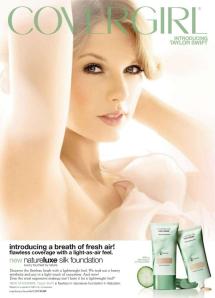After reading many of my class mates blog posts about satirical news reporting, I started noticing that a lot of the blogs came to the final consensus that satirical news was equally as reliable as traditional news reportage because many people believed it was blunt and didn’t tend to hide anything from the audience. I agree with this consensus because I feel that satirical reporting shows such as the rick mercer report show the real news uncut, and go deep into the story. Although comedy may be used to entertain the viewers the news itself has not changed, only the way it is being presented.
I always enjoy reading the blogs of the males in my class and comparing it my own opinion because I like to see how each gender may view the certain subject. Hunter made a very valid point in his blog this week when he stated “While many sources continue to follow this pattern, the satirical news offers the information with little to none being held from the viewers.”(1) This only further applies to the idea that satirical news is equally, if not more, reliable than traditional news reporting because it does not withhold any information from the viewers but rather, tells the true uncut story.
Brittany makes a valid point in her blog when she says “Though these television shows may not be entirely focused on explaining what has happened in current events, they are bringing awareness to the situation.” (2) I completely agree with her statement, satirical news reporting is not focused on getting the daily news out into the communities of those who watch their shows but rather, bring the big issues to the listener’s attention. For example, we can take the Rob Ford ‘crack’ situation into account. This has become a large part of the news lately and is a prime topic for discussion in satirical news reporting because this is a very easy topic to turn into a comedic episode. Satirical news reporting is still presenting the facts about the news, but it focuses on a few key stories, not everything.
Satirical reporting works off of the comedic relationship they create with their audiences. David caught my attention while I was reading his blog when he said “Establishing a relationship with audiences in the public sphere will always be valuable, regardless of the presence of a satirical nature.” (3) I agree with this statement because I think that having only a satirical nature to our news reporting could create issues in our public sphere. As much as I believe that satirical news reporting has an importance in the public sphere I also believe that traditional news reporting plays a greater role because it communicates to everyone in the public sphere, not only the people who are looking for entertainment along with the news report.
I think that in the future satirical news reporting will play a great role in how news is reported in the public sphere but traditional news reporting will always take the lead because it is what listeners are comfortable with believing even if they know it’s the candy coated version.
(1) http://lunterhackey.blogspot.ca/2013/11/is-fake-news-real-news.html
(2) http://britshannon.blogspot.ca/2013/11/is-fake-news-real-news.html
(3) http://oconnormedia.wordpress.com/2013/11/21/1f25-blog-entry-4-is-the-fake-news-the-real-news/







